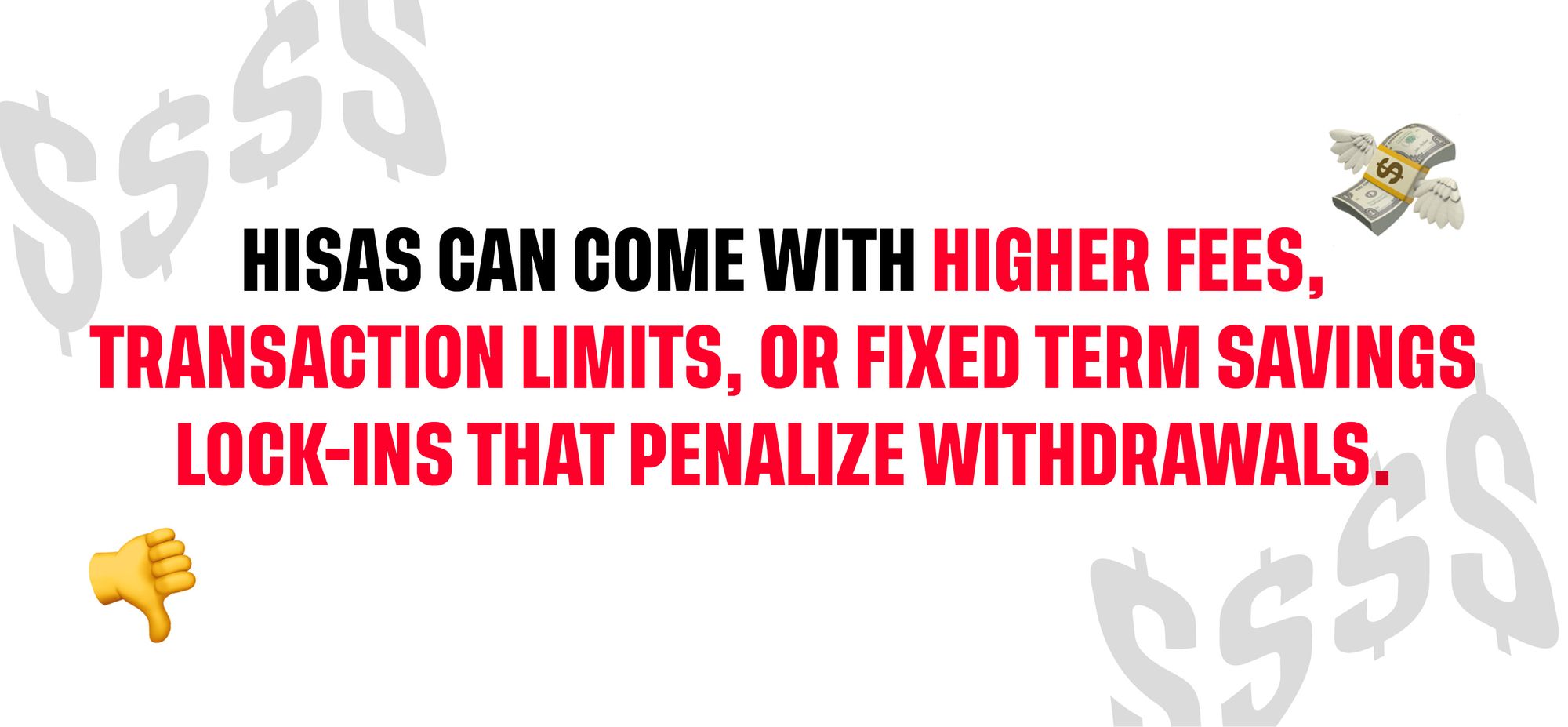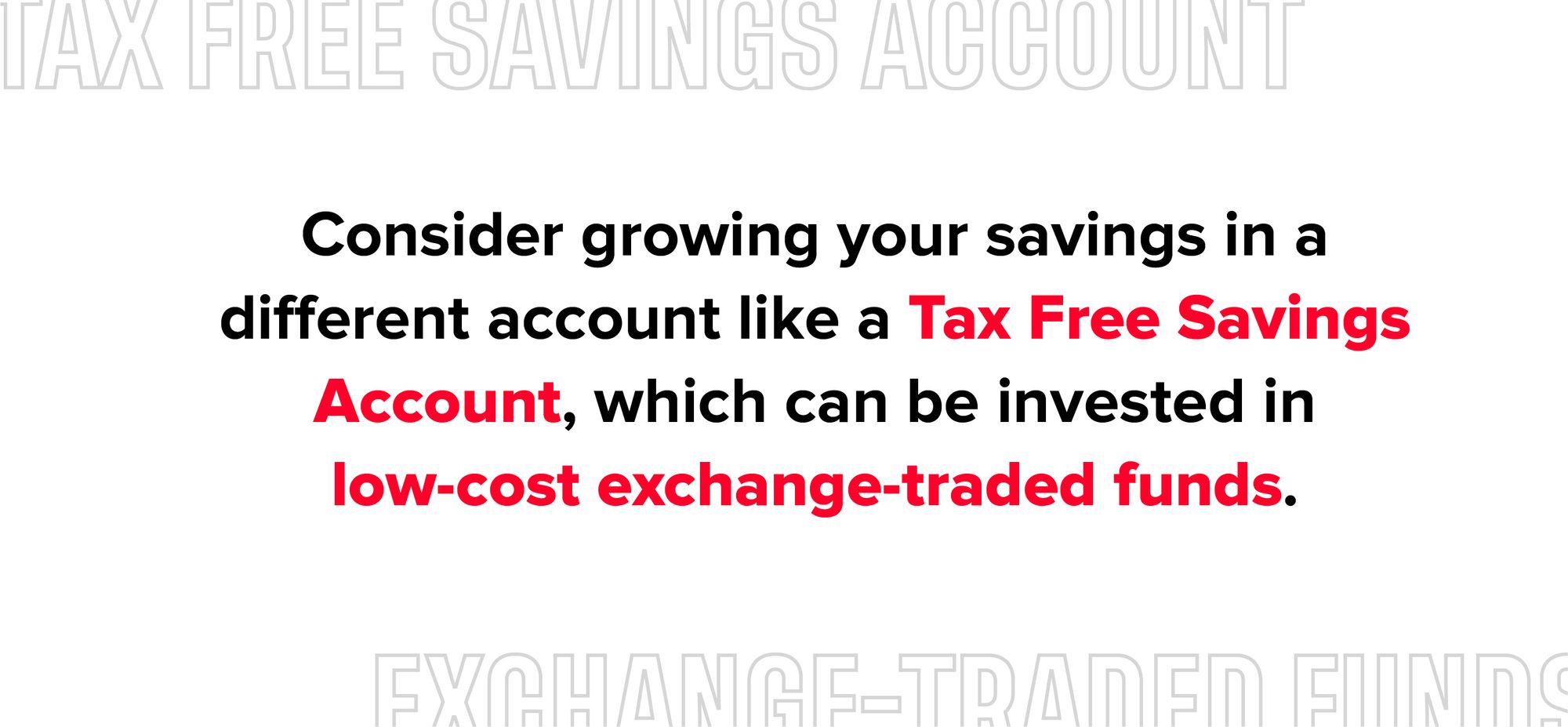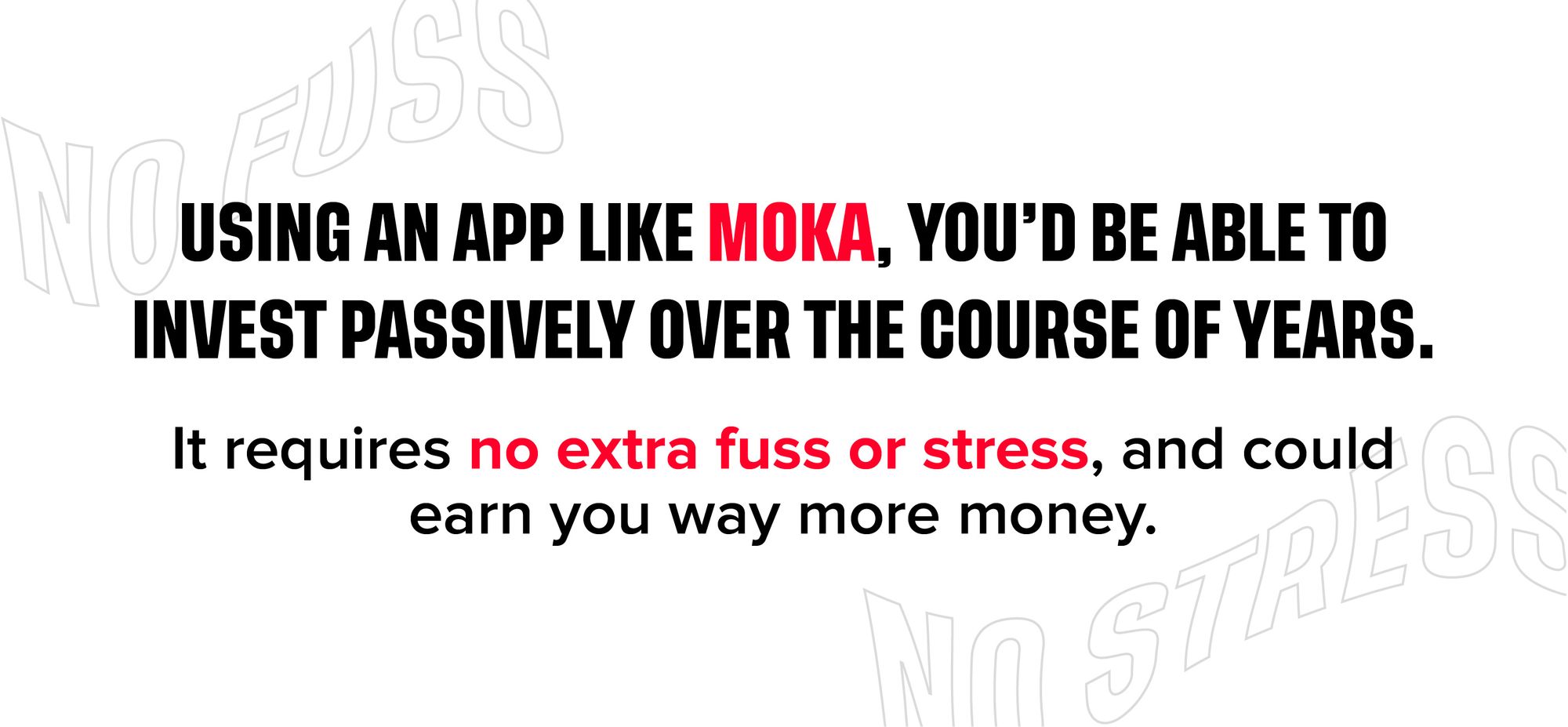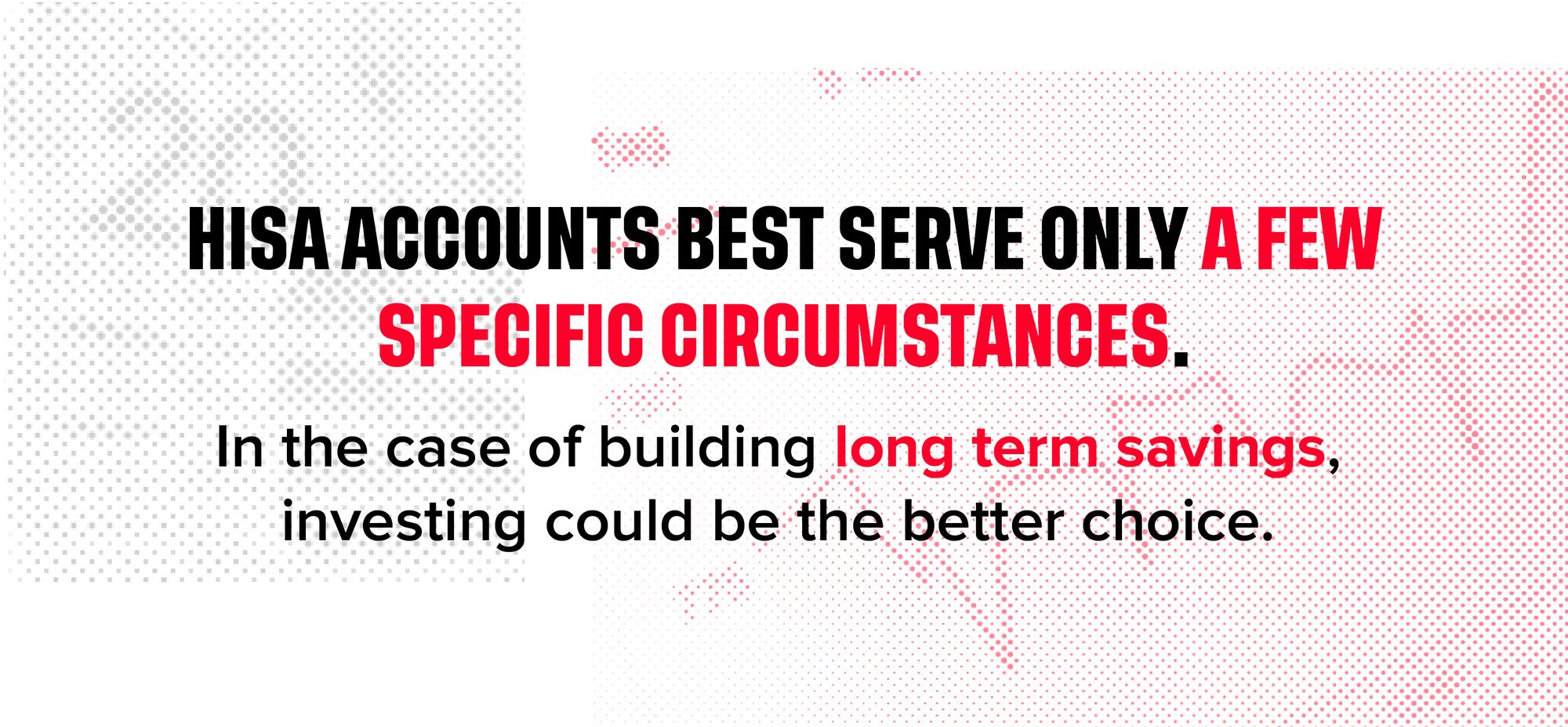The Problem With High Interest Savings Accounts
High interest savings accounts are often touted as must haves when setting up your banking. But how useful or important are they?
What Are High Interest Savings Accounts?

High Interest Savings Accounts (HISAs) are bank accounts available from most financial institutions. These accounts are designed to help you grow your savings.
When setting up your bank accounts, it’s common to have a chequing account, which you use for day to day expenses, and one or more savings accounts, which are meant to accumulate cash over time.
HISAs are different from typical savings accounts because they offer better interest rates on your savings balance. A typical savings account may offer only 0.01% interest—or none at all. This low interest rate makes typical savings accounts comparatively inefficient ways to grow your savings.
HISAs offer higher interest rates, historically being between 0.5% and 2%. This means for every interest period you keep money in that account, you’re rewarded with between 0.5% and 2% back.

If you’re going to keep cash in a savings account, it’s often best to find a HISA that will work for you. But be aware: HISAs can come with higher fees, transaction limits, or fixed term savings lock-ins that penalize withdrawals.
When High Interest Savings Accounts Aren’t Enough
Hear us out.
High Interest Savings Accounts are good banking tools to have. But are they going to help you grow your money efficiently?
No.
Not compared to other financial strategies, like investing. We’re not suggesting you pull your life savings from your HISA and invest it in Tesla stocks. We’re not even suggesting you need to fundamentally change the way you do your banking.

But instead of trying to grow your savings in a HISA, consider growing them in a different account like a Tax Free Savings Account (TFSA), which can be invested in low-cost exchange-traded funds (ETFs).
Why?
HISAs might pay out, on average, between 0.5% and 2% interest on your balance (sometimes higher interest rates may be on offer, but these are generally temporary and only for promotional purposes).
The stock market, on the other hand? Tends to see returns of around 9.2% annually. That’s a huge difference. Leaving your money in a HISA will see some returns, yes, but those could pale in comparison to investments.

By using an app like Moka, for example, you’d be able to invest passively over the course of years. It requires no extra work, no extra fuss or stress, and could earn you way more money.
When Should I Use a High Interest Savings Account?
HISAs do have valuable applications. It’s just important to know what circumstances warrant which type of approach.
For long term savings growth, like retirement, investing can be an excellent choice. If you’re worried about the risk of investment—because there is a risk—you may want to opt for a lower risk preference across your investment portfolio.
But for short term savings, or for cash you may need to access right away, a HISA can be a great tool.
Here are a few examples of scenarios perhaps best suited for investing:
- Retirement savings
- Down payment for a home purchase several years away
- Education savings for your children or grand children
These are expensive scenarios that you may have several years to save for. Making use of the stock market return rate may help you reach these goals way faster.
Conversely, you might use a HISA for:
- Emergency funds
- Vacation funds
- Gift funds
Each of these scenarios operates on a much shorter timeline than something like retirement, and allows you easy access to your cash if you need it fast, like in the event of an emergency.
Emergency funds can be sizeable, and it might feel silly to not invest that big lump sum in your bank. But if funds are invested, it can take days to liquidate your holdings and wind up with your cash in hand. In this case, a HISA is a great choice.
The Problem With High Interest Savings Accounts

So what is the problem with high interest savings accounts?
Our big gripe with HISAs is that they aren’t the do-it-all salve they’re often made out to be. Especially for young people, your bank may recommend a HISA before they recommend beginning your life as an investor.
It’s understandable for Canadians to open up a HISA and feel that they’re doing all they can with their money. A HISA can minimize risk while maximizing on those bank interest rates.
But in our opinion, these accounts best serve only a few specific circumstances. In the case of building long term savings, investing could be the better choice.
Just some food for thought, friends. You are the expert on your financial circumstances. Now let’s do some research, make informed decisions, and start building some wealth.
This blog is provided for informational purposes only, isn’t intended as investment advice, and isn’t meant to suggest a particular investment or financial strategy is suitable for any particular investor. If you’re unsure about an investment or a financial decision, you may wish to obtain investment advice from a qualified professional.